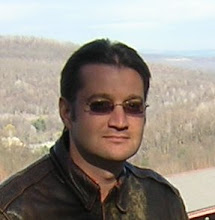Montgomery County Council vacancies are filled by special elections. So why shouldn’t we do the same for state legislator vacancies?
Here’s how the county process works. When a council vacancy occurs, a special election must be held if the vacancy “occurs before December 1 of the year before a year in which a quadrennial state election will be held.” (County code, Chapter 16, Sec. 16-17(a)(4)) So, if a county council member stepped down on 11/30/09, a special election would have to be held. But if a council member stepped down on 12/2/09, the rest of the council would appoint a replacement who would serve out the rest of the term (County charter, Sec. 106).
When a special election is held, it “must be conducted in a manner consistent with provisions of state law that govern special elections to fill vacancies in the office of representative in Congress.” (County code, Chapter 16, Sec. 16-17(c)(1)) The council must adopt a resolution that sets the dates of both the special primary and the special general election.
However, “if the Council vacancy occurs during the period beginning 120 days before the next regular or special primary or general election conducted in the County under state law and ending 40 days before that election, the special primary election provided for by this Section must be held on the same date as the other election. If a second regular or special primary or general election conducted in the County under state law is held more than 30 but less than 60 days after the special primary election referred to in the preceding sentence, the special general election held under this Section must be held on the same date as the second other election.” (County code, Chapter 16, Sec. 16-17(d)(2))
So by using the same dates as other elections, the cost of special elections can be reduced and turnout can be elevated.
The last time a county council vacancy occurred was when District 5 council member Derick Berlage stepped down in June 2002 to become the county’s Planning Chairman. As the date was too late to trigger the special election requirement, the county council appointed Donnell Peterman to serve out the remaining months of Berlage’s term. Peterman was appointed on the condition that he not leverage his appointed incumbency to seek office that year. Peterman honored that commitment in 2002, choosing instead to run (unsuccessfully) for an at-large seat in 2006.
Now doesn’t this sound a lot better than the appointment process for state legislators, which brought us this and this and this?
The excuses for why we should not hold special elections for state vacancies are rapidly disappearing.
Subscribe to:
Post Comments (Atom)


No comments:
Post a Comment